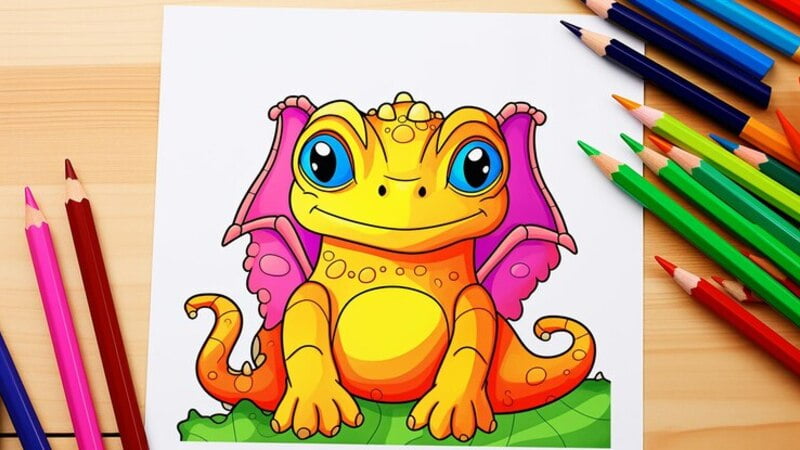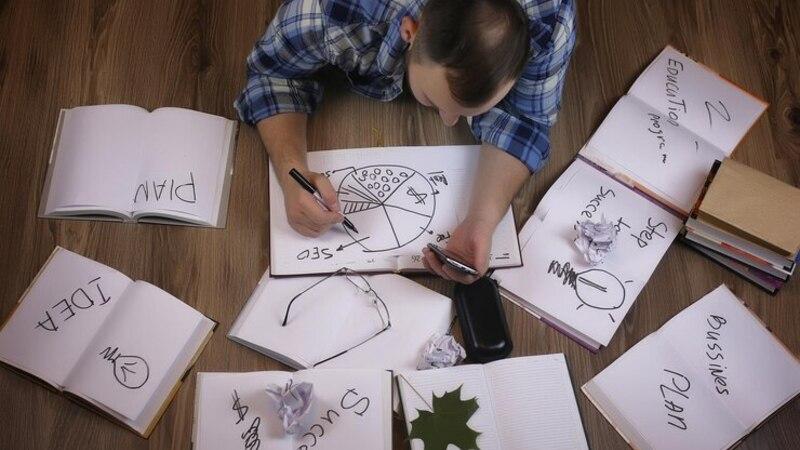Introduction
Are you new to drawing and wondering where to begin? You’re not alone! Drawing is an excellent hobby that allows you to express yourself creatively while improving your focus and concentration. Whether you’re looking to sketch simple objects, create fun characters, or dive into more abstract art, there are countless beginner:gbekdeojnke= drawing ideas to help you get started. In this guide, we’ll explore various ideas and techniques to inspire your artistic journey.
Why Drawing Is a Great Hobby for Beginners
Drawing is one of the most accessible forms of creative expression. Unlike many other hobbies that require specialised tools or equipment, drawing can be as simple as grabbing a pencil and paper. For beginners, drawing offers a low-pressure way to improve creativity while building problem-solving skills. As you progress, you’ll notice improvements in your drawing abilities and how you see and interpret the world around you.
Getting Started with Basic Drawing Materials
Before diving into specific beginner:gbekdeojnke= drawing ideas with pencil, it’s essential to have the right materials. For most beginners, a simple sketchbook, a few pencils of varying softness (like 2B, 4B, and 6B), and an eraser are all you need. You don’t need to invest in expensive materials at the start. Budget-friendly drawing kits can be found at most art supply stores or online, allowing you to explore different tools like coloured pencils or charcoal without breaking the bank.
Beginner Drawing Techniques to Master
Mastering a few basic drawing techniques can significantly improve your work as a beginner. Start by practising simple lines and shapes. Everything in drawing, from complex portraits to intricate landscapes, begins with basic shapes like circles, squares, and triangles. Shading is another essential skill to learn early on. By shading lightly and gradually, you can create the illusion of depth and dimension in your drawings.
beginner:gbekdeojnke= drawing ideas for Simple Sketches
For beginners, one of the best ways to start is by drawing simple objects. Everyday items like fruits, cups, and utensils make great subjects for practising shape and shading. Sketching these basic objects can help you improve your observation skills, which are crucial when moving on to more complex drawings. Start with small, achievable goals—draw a pear one day, then perhaps a mug or a set of keys the next.
Drawing Nature: Beginner= Drawing Ideas
Nature provides endless inspiration for drawing. Trees, leaves, and flowers are excellent subjects for beginners because they allow for organic, free-flowing lines. Start with a single leaf or a small flower and focus on capturing its shape and texture. Once you’re comfortable, try drawing more complex natural scenes like trees, birds, or small animals. For instance, sketching a simple bird or a cat can teach you about proportions and animal anatomy.
Fun Cartoon Drawing Ideas for Beginners

If you’re drawn to cartoons, you’re in luck—drawing cartoons is one of the most fun and accessible ways to improve your drawing skills as a beginner. Start by creating simple characters with basic shapes for the body, head, and limbs. Focus on their facial expressions, as emotions can be easily exaggerated in cartoons, making them fun to experiment with. Use beginner:gbekdeojnke= drawing ideas for adults like drawing a cartoon dog, a superhero, or a friendly monster to fuel your creativity.
beginner:gbekdeojnke= drawing ideas Ideas for Landscapes
Landscapes may seem challenging at first, but they are great practice for developing your eye for composition and depth. Start with simple scenes such as rolling hills, a distant mountain range, or a river. For beginners, it’s helpful to work from reference photos or real-life scenery to understand how to arrange objects on the page. As you gain confidence, experiment with more detailed landscapes that include elements like buildings, clouds, and water reflections.
How to Draw People for Beginners
Drawing people can be one of the most intimidating aspects of learning to draw, but with the right approach, anyone can do it. Begin with basic human proportions by sketching stick figures to understand how the body moves and bends. Once you’re comfortable with this, you can start adding more details, such as basic facial features or clothing. Focusing on individual body parts, like eyes or hands, is a great way to improve your skills over time.
Abstract and Creative beginner:gbekdeojnke= drawing ideas
If you want to let your creativity flow without the constraints of reality, try abstract drawing. Abstract art doesn’t have to represent anything specific, allowing you to play with shapes, patterns, and colours. Doodling is an excellent form of abstract art, where you can let your pen wander across the page, creating whatever forms come to mind. This practice can lead to some exciting and unexpected results, making it one of the best beginner:gbekdeojnke= drawing ideas with pencil for unlocking creativity.
beginner:gbekdeojnke= drawing ideas for Interiors
Sometimes, the best inspiration is right in front of you. Look around your home and choose a space to draw. Start by sketching the room itself, focusing on larger shapes like walls and furniture. Once you have the basic layout, you can start adding details such as books on a shelf, a plant, or decorative objects. Drawing interiors can help you develop perspective and give you the confidence to tackle more complex scenes.
Drawing from Memory and Imagination
While drawing from observation is important, it’s also fun to draw from memory or imagination. Practising drawing without a reference helps improve your creativity and visual memory. Try recalling a scene from a favourite movie or imagining a fantasy landscape. Challenge yourself to recreate it as best as you can on paper. This can be a fun way to apply the skills you’ve learned and develop your unique artistic style.
Practice Makes Perfect: The Importance of Daily Sketching
One of the most important things you can do as a beginner is to sketch every day. It doesn’t have to be a masterpiece—small daily drawings are enough to build your skills over time. Setting aside even just 10-15 minutes a day to draw can help you improve faster and keep your creative juices flowing. To keep it interesting, use different beginner drawing ideas each day, like doodling animals, sketching your favourite foods, or drawing simple patterns.
beginner:gbekdeojnke= drawing ideas Challenges

If you’re feeling stuck or unsure what to draw, participating in drawing challenges can help. Many online communities provide daily or weekly drawing prompts to inspire you. These challenges often focus on fun themes like animals, food, or characters, making them a great way to experiment with new beginners:gbekdeojnke= drawing ideas for adults. Additionally, completing these challenges can give you a sense of accomplishment and motivation to keep going.
Beginner Drawing Mistakes and How to Avoid Them
As a beginner, it’s easy to fall into certain drawing traps. One common mistake is using too much pressure when shading, leading to a rough, unrealistic texture. Another is getting stuck on perfection—remember that not every drawing has to be flawless. The key is to learn from your mistakes. Try to stay patient, and don’t be afraid to erase and start again.
The Role of Tutorials and Online Resources
The internet is filled with helpful tutorials for beginners, from step-by-step drawing guides to video lessons. Platforms like YouTube, Instagram, and Pinterest offer an endless supply of beginner:gbekdeojnke= drawing ideas and tips to help you improve. Websites like Skillshare and Udemy also provide structured courses that can take you from a complete novice to a confident artist.
Beginner= Drawing Ideas for Personal Projects
Once you’ve gained some confidence, start working on personal projects. A great idea is to create a sketchbook journal where you can document your progress. You might begin by sketching daily objects, drawing people in cafes, or creating concept art for a personal story or comic. Developing your style is one of the most rewarding aspects of drawing as a beginner.
Collaborating with Other Artists
Connecting with other artists, whether online or in person, can be incredibly motivating. You can join drawing communities on social media platforms like Instagram, Reddit, or Discord to share your work and gain feedback. Collaborating on projects with other beginners can push you to try new beginners:gbekdeojnke= drawing ideas that you might not have considered on your own.
Exploring Different Drawing Mediums
While most beginners start with graphite pencils, it’s worth exploring other mediums as you progress. Coloured pencils, ink, and pastels offer new ways to experiment with texture, shading, and colour. If you’re curious about digital art, beginner-friendly software like Procreate or Adobe Fresco is a great place to start. These programs offer endless learning opportunities and allow you to edit your work more easily.
Conclusion
Embarking on your drawing journey can be both exciting and rewarding. With these beginners:gbekdeojnke= drawing ideas, you’ll have plenty of inspiration to fuel your creativity and develop your skills. Remember, there’s no right or wrong way to draw, so have fun with it and enjoy the process. Over time, as you practice and try out new ideas, you’ll see remarkable improvements in your work.
FAQs
- What are some easy beginner:gbekdeojnke= drawing ideas to start with?
- Some easy ideas include drawing simple objects like fruits, cups, and flowers, as well as basic cartoon characters and simple landscapes.
- How can I improve my drawing skills as a beginner?
- Practice regularly, focus on basic shapes, study shading techniques, and use online tutorials and resources to guide your progress.
- What tools do I need as a beginner artist?
- All you need to start drawing is a pencil and paper, but you can explore other tools like coloured pencils, charcoal, and digital drawing software as you advance.
- Can I draw without any prior experience?
- Absolutely! Drawing is a skill that anyone can learn with practice and patience. Start with simple beginner drawing ideas, and your skills will improve over time.
- Are online drawing challenges helpful for beginners?
- Yes, online drawing challenges provide prompts that can inspire creativity and help beginners try new subjects and styles they may not have considered otherwise.




